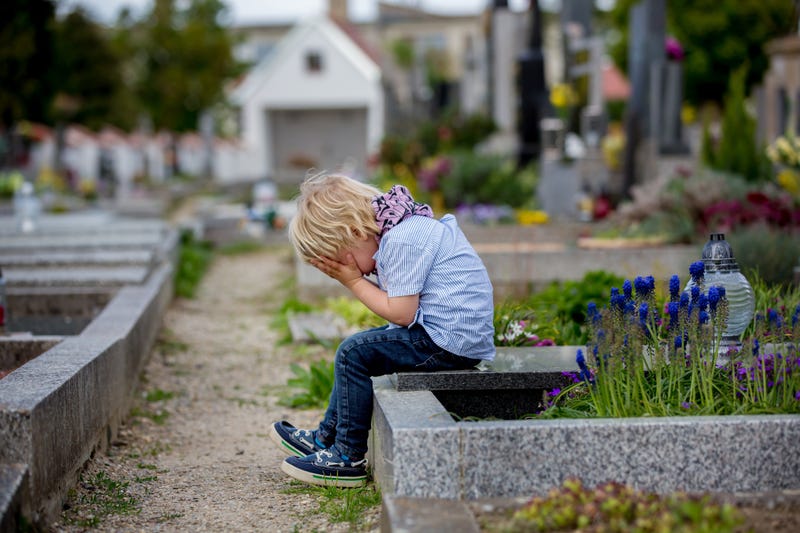
Since April 1 of last year, the COVID-19 pandemic has robbed 140,000 children under age 18 of at least one caregiver, according a National Institutes of Health update on a recent study.
Study authors estimated that 120,630 children in the U.S.
lost a primary caregiver due to COVID-19-associated death and 22,007 children experienced the death of a secondary caregiver. At this rate, one child loses a caregiver for every four COVID-19 deaths.
Approximately 1 out of 500 children in the U.S. has experienced COVID-19 associated orphan-hood or death of a grandparent caregiver “who provided the child’s home and basic needs, including love, security, and daily care,” said the NIH.
Children of certain racial and ethnic groups accounted for 65 percent of those who lost a primary caregiver: one of every 168 American Indian/Alaska Native children, one of every 310 Black children and one of every 412 Hispanic children faced caregiver death amid the pandemic. On the other hand, one out of every 753 white children and one out of every 612 Asian children experienced caregiver death.
“I'm trying to be strong for my family,” said Imani Alexander, a Black 15-year-old from Florida who lost her 38-year-old mother to COVID-19 in January, according to USA Today. However, Alexander said “I have my moments. There will be a lot of them, I know that.”
A large portion of Black children in other Southeastern states such as Mississippi, Alabama and Louisiana have lost caregivers, USA Today said. Alaska, New Hampshire, North Dakota, South Dakota and Washington D.C. had the starkest disparities between white children and children of color.
Along with higher rates of caregiver death, children from the most impacted communities of color have also become infected, been hospitalized and died at higher rates than white children.
Centers for Disease Control and Prevention epidemiologist Susan Hillis, lead author of the study that found the statistics about caregivers lost to the pandemic, called the disparities in those impacted “disturbing.”
“Children’s lives are permanently changed by the loss of a mother, father, or grandparent who provided their homes, basic needs, and care,” said the National Institutes of Health. Loss of a parent can lead to mental health problems, low self-esteem, risky sexual behaviors, increased risk of substance abuse, suicide, violence, sexual abuse and exploitation.
According to USA Today, these issues get piled on to other challenges such as lack of access to health care or food insecurity for some families impacted.
“For Black kids, they’re also dealing with racial discrimination, and sometimes criminal victimization and sometimes inadequate health care,” said Terrinieka Powell, a Johns Hopkins University psychologist, “We really need to be thinking about all of the supports that are around them, to ensure they’re still able to thrive despite this monumental loss.”
Hopi tribe member Felina Cordova-Marks, a University of Arizona professor and health disparities expert, said that caregiver loss is compounded on historical trauma for Indigenous children.
Brady Two Bulls, age 6, a member of the Oglala tribe raised on the Ridge Reservation in South Dakota, lost his 54-year-old grandfather Cecil Little Hawk Sept. 9.
Cecil and Brady’s grandmother, Mary Little Hawk, raised the boy.
Since Cecil’s death, Brady sometimes runs outside and gazes down the road, “Like he’s waiting for someone to pull up,” Mary said. “He doesn't say his grandpa's name. All he says is, ‘I miss someone.’ And that really hurts at times, because I know he's feeling sad.”
To help children who have suffered the loss of a caregiver move forward, the National Institutes of Health recommend that children be kept with their families or moved into foster care situations as soon as possible if they are necessary. Other ways to support them include strengthening economic support, offering quality childcare and education, and programs to improve family relationships.
“We often think of the impact of COVID-19 in terms of the number of lives claimed by the disease, but as this study shows, it is critical to also address the broader impact – both in terms of those who have died, and those who have been left behind,” said study co-author Charles A. Nelson III, PhD. who studies the effects of adversity on brain and behavioral development at Boston Children’s Hospital.


